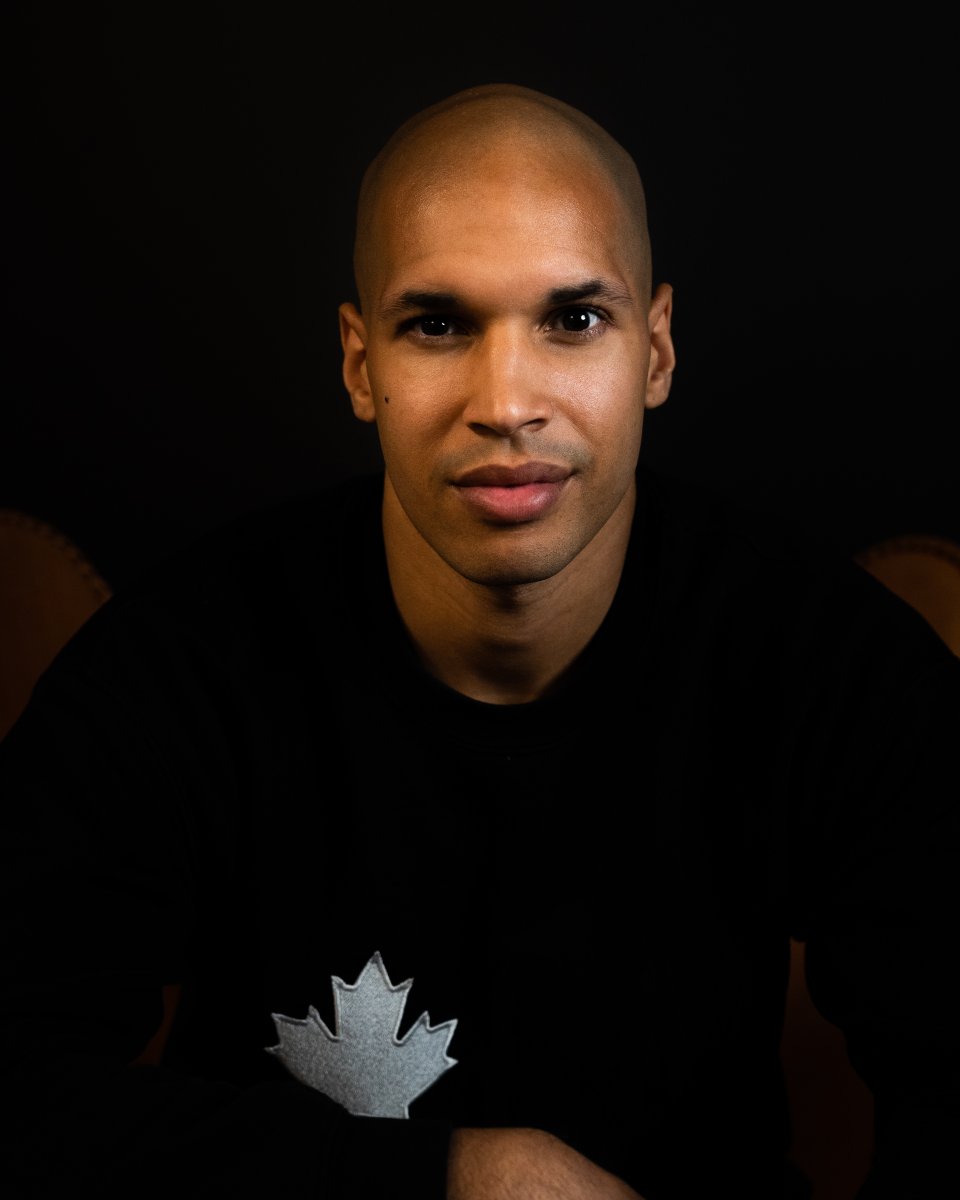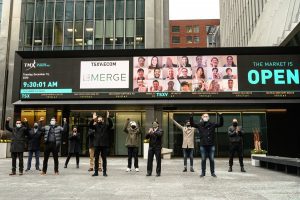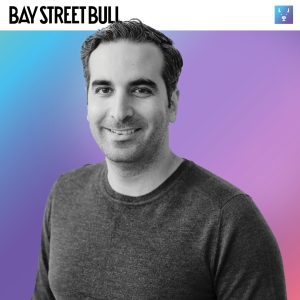[vc_row][vc_column][vc_column_text]The COVID-19 pandemic has shown Canadians that virtually anything can be bought online—including groceries. And while some may think of a trip to the grocery store as their one chance to get out of the house, Marc Lafleur, CEO and Co-Founder of truLOCAL, believes that the rise in online purchases is here to stay.
“People were skeptical about entering their credit card information online or having a boxing show up at their door, but because they were forced to [during the COVID-19 pandemic], people realized, ‘Wow, I ordered this online. Everything went smoothly. And it showed up at my door the next day,’” said Lafleur. “And I think a lot of people are going to be sticking with that.”
Of course, Lafleur has good reason to believe this. The food-based direct-to-consumer industry is booming—meal kits are set to be a $20-billion market by 2027.
Unlike other services that provide a whole set of ingredients to make a meal, truLOCAL stands out in its subscription-based service that specializes in locally-sourced, high-quality meats, and its mission to completely change the current supply chains for meat suppliers.
Its industry-disrupting way of getting high-quality meat to your doorstep is quickly becoming a favourite for those in British Columbia, Alberta, Ontario, and now Quebec. In fact, truLOCAL has been on an upwards trend since launching in 2016, doing $20-million in revenue in 2020.
The company’s success even caught the eye of EMERGE Commerce TSXV:ECOM, which acquired truLOCAL at the beginning of the year.
And to think, none of this would have happened if Lafleur didn’t take a leap into entrepreneurship, leave a job where he was making a handsome six-figure salary, and start the company with truLOCAL co-founder, Greg Quaile.
For this week’s Entrepreneur of the Week, Bay Street Bull spoke with Marc Lafleur, CEO and Co-Founder of truLOCAL, about being a professional problem solver, betting on himself, and how truLOCAL is not only providing consumers with great products but changing the game for meat producers across the country.[/vc_column_text][vc_text_separator title=”Q&A” color=”custom” style=”dotted” border_width=”3″ accent_color=”#54c631″][vc_column_text]On Dragon’s Den, you and your co-founder talk about quitting your six-figure jobs to leap into entrepreneurship. What was it like making that decision to leave something pretty stable and entering a completely unprecedented world?
When you think about it, high level, there’s always something scary. But being completely honest, I wasn’t that scared at all. As cliche as it sounds, I think it’s because it [entrepreneurship] was something that I knew I wanted to do.
I went to a networking event once and someone told me, “$200,000 is the scariest number you’re ever going to make.” I was 25 making that type of money, then if you get into 26, 27, 28, it becomes a standard of life and it becomes very difficult to leave that, to go do something else. Nowadays people will struggle with leaving a $50,000 job or an $80,000 job because of the stability. I didn’t want to be too scared to leave what was comfortable to try something new.
So for me, you know, I was young. I didn’t have any responsibilities, didn’t have any dependents. It was just a chance to bet on myself, and I haven’t looked back ever since.
With betting on yourself, you go from doing the work to running and building a business around it. What kind of learning curves happened with making that switch from being an employee to being a business owner?
That’s the one thing I think people don’t teach you: it’s ever-changing. And once again, from a high level, people know that startups are chaotic and they’re growing, but you as a founder, transitioning into a CEO, that journey is very difficult.
You don’t have someone explaining to you that every six months, your role is going to change. When we started the business, I thought I was going to be the lead marketer; that was my background. I wanted to focus on marketing and people would tell me that one day I’d be focused on running the business, not doing the marketing, but I never saw that connection. It’s not until you start having a team underneath you that you start realizing that a founder’s or CEO’s job is to work for their team.
Those transitions were really interesting and they were very jarring because you didn’t know to expect them. Now it’s become part of what I love about running a business—my job changes every six months to a year
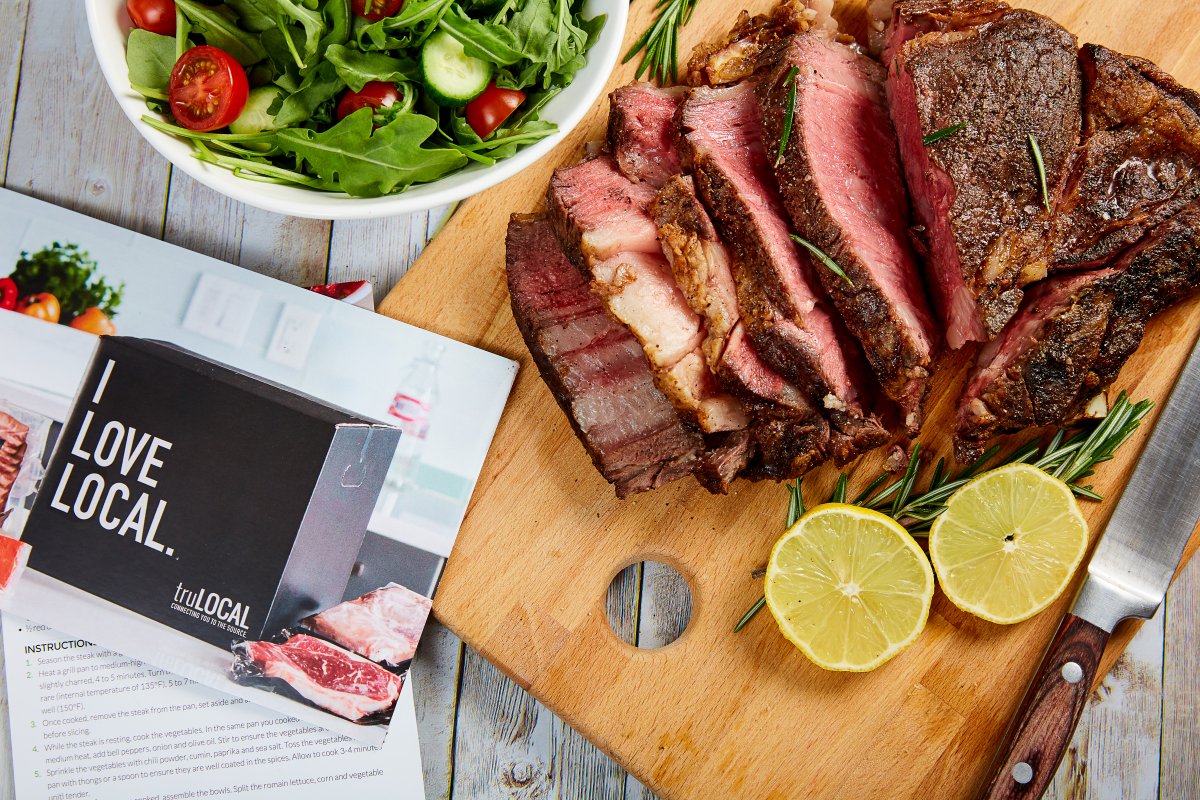

You were used to and expecting those six months changes, but how did COVID-19 change those expectations for truLOCAL and yourself? Were you forced to pivot in a way like never before?
To be honest, I think the startups were the best equipped to deal with a crisis like this [COVID-19] because we’re used to that chaos because we’ve been brought up in a culture of change. When you’re a more established business or one that doesn’t move as quickly in terms of reacting to the market, it would’ve been really scary.
As soon as the word came out, we kind of went into emergency mode, which we’ve been in many times before. We’ve had tons of crises, obviously not at this scale, but tons of things that are existential to a small business. So, it wasn’t something that we hadn’t experienced before in terms of the procedures and processes that we need to follow to deal with the crisis.
What’s going on with COVID-19 right now is horrible health-wise. I also think that people need to shine a light on the small businesses that are affected: restaurants are going under, gyms are closing, people are really struggling. I realize that truLOCAL was fortunate as an essential service.
For us, one of the biggest things was how do we adapt to the increase in demand? How do we make sure that our supply chains are locked down, not just from a product perspective? Fortunately, we have a lot of small producers and suppliers rather than the national supply chains that are centralized—60 percent of product coming from one facility is very risky. So luckily we didn’t have any supply issues on that side, but the thing that made us concerned was packaging and supply issues. I think a lot of people don’t think about the materials it takes to get the product to people’s door; they think mostly about their product.
With the growing demand, hiring safely and effectively was a whole challenge in itself. Fortunately, we were able to provide jobs and had a lot of people that had just recently lost their jobs due to COVID-19 come work with truLOCAL.
Like many businesses in the e-commerce space, truLOCAL was fortunate in the sense, as you said, there was a higher demand for it. What positive changes have come out of the last year?
I think that there was a lot of skepticism early on about whether these changes were here to stay. Are these things that are people just panic buying? Are people just knee-jerk reacting to going online? For anyone in the e-commerce space, we make an argument that that’s not the case. We’ve been doubling down on e-commerce for a long time and to the point of working with EMERGE—its entire portfolio is focusing on niche e-commerce businesses.
The pandemic didn’t change consumer behavior. It just accelerated it. For people who never considered shopping online, it wasn’t because they didn’t like it, or because they tried it and decided it wasn’t for them. A lot of people were skeptical about entering their credit card information online or having a box show up at their door, but because they were forced to [during the COVID-19 pandemic], people realized, “Wow, I ordered this online. Everything went smoothly. And it showed up at my door the next day.” And I think a lot of people are going to be sticking with that.
And with truLOCAL’s list of products for your customers, how do you choose your suppliers?
For us, it’s always looking for a great story. We want to work with people who are passionate about what they’re doing. And we want people who can give us as much transparency as possible, whether that be on the producer level or the butcher level, or the supplier level. We want to be able to go there, meet them, see what their operation is all about, and get an understanding of how their relationships work.
Then of course our biggest thing is looking for products local to that specific province. The only exception we make on that is fish because we deal with wild-caught fish. Those are the only products that we source from outside of the province. We also have to have that added value, whether that be products that are 100 percent grass-fed, RWA (raised without antibiotics), or pasture-raised. And we have to be able to go and meet the faces behind what’s going on—that way we can share that information with our consumers. That’s the most important thing for us.
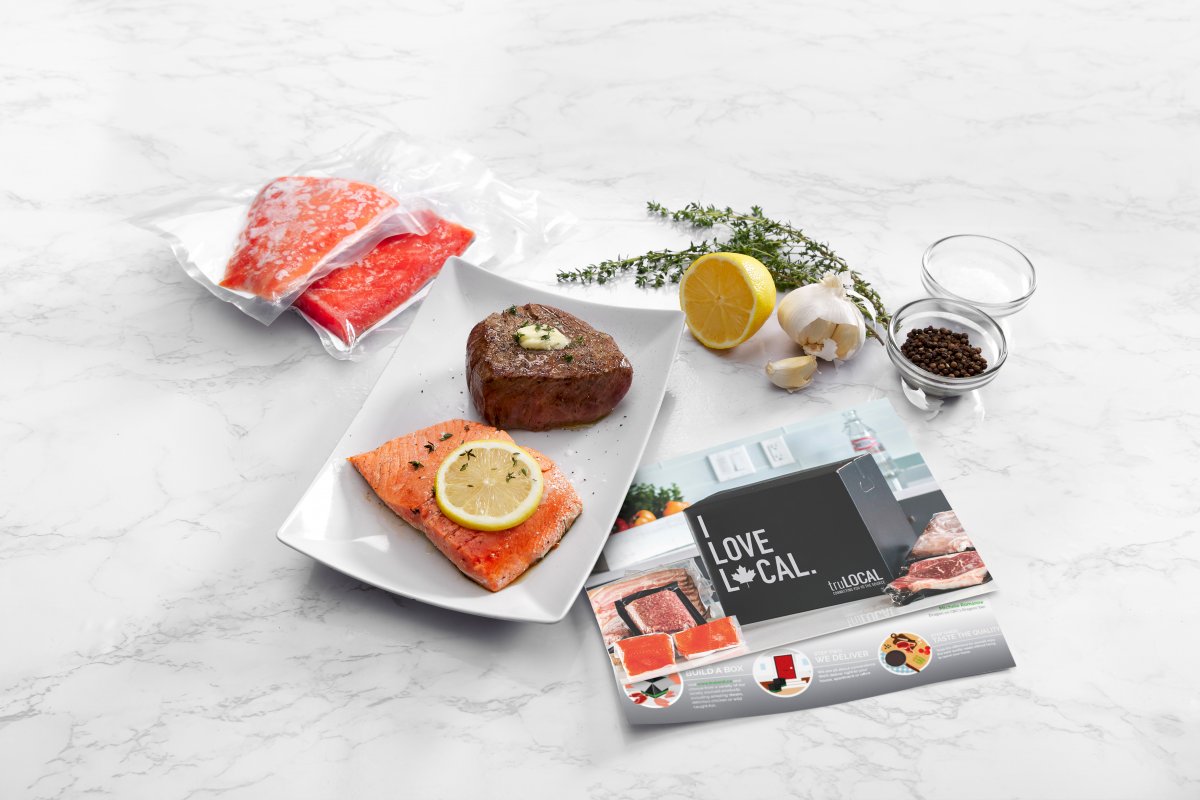

truLOCAL has a pretty niche market. There are pre-made meal kits and meal kits with ingredients that still need to be prepared, but truLOCAL focuses on high-quality meats. Do you think you’ll ever expand outside of what you’re doing right now, whether that be adding in plant-based options or other grocery items?
When we started the business five years ago, it was really about getting these products into people’s hands via an online service. As the years went by, we started realizing that this was about a lot more than that. It’s about giving people that direct connection to the suppliers. We want to bridge that gap and make it as small as possible. So, now as we move forward, we’re focused on developing regional supply chains and shortening that supply chain to the consumer. Rather than focusing on expanding into new products, we just want to get better at connecting people with the farmers and the suppliers.
One of the biggest struggles that producers face, whether it be a farmer or a butcher shop, is logistics and e-commerce solutions now that people are shopping online. So we’re looking at providing fulfillment solutions for producers and farmers, where people can order direct from them and we’ll handle all the logistics, which is huge! As a farmer or any sort of producer, your focus is on raising the animals. Traditionally, you’re working seven days a week raising these animals. Then you also have to spend your weekends trying to sell these products to the farmer’s market, which is no longer available—and even before that, they were starting to decline. So, helping these producers step into the 21st century and go directly to shipping these products to consumers is where our focus is more than expanding product lines.
And building off that, as a business, truLOCAL has two groups of people that you’re serving, both producers and consumers. What has the response been from both sides?
That’s kind of why truLOCAL became about connecting you to the source. When we started the business, there was a lot about the consumer. We didn’t have a huge understanding of what was going on on the supplier side, or that they were dealing with any challenges at all. So for us, we wanted to be the best in class at giving people access to value-added meat products. And we thought we did a really good job at that.
It wasn’t until year two when we started spending a lot more time looking for more producers and suppliers that we understood they have a ton of challenges as well. For one, when you’re a smaller producer, you’re limited to who you can sell to: restaurants only want your prime cuts, but what happens to the rest of the animal? Suppliers are typically a little too small to supply a grocery store, so they’re stuck selling to local butcher shops or during the farmer’s market, and that works well to a certain size.
However, if you want to grow your business as a producer, you’ve got to find ways to get more people aware of your brand. So that’s where we started to double down on, to see how truLOCAL can add to the equation as well. That’s when we realized it wasn’t just about serving consumers. It wasn’t just about serving suppliers. It was about getting them connected as much as possible.
The response has been amazing. From a consumer perspective, we’ve been growing— we did $20-million in revenue last year. So there’s a big demand for what we’re doing from the consumer side. On the supplier side, we’re just about to launch what we call FBTL or “fulfilled by truLOCAL,” and it’s going to allow all of these producers to have a logistics arm for their businesses.
We’re excited about working with EMERGE as well. They have a huge following and a huge member base across Canada. And we feel that on the consumer side, we’ll be able to reach more people as well. So, it’s been a good response.
RELATED: How EMERGE Commerce CEO Ghassan Halazon is Building the Next Big E-Commerce Platform
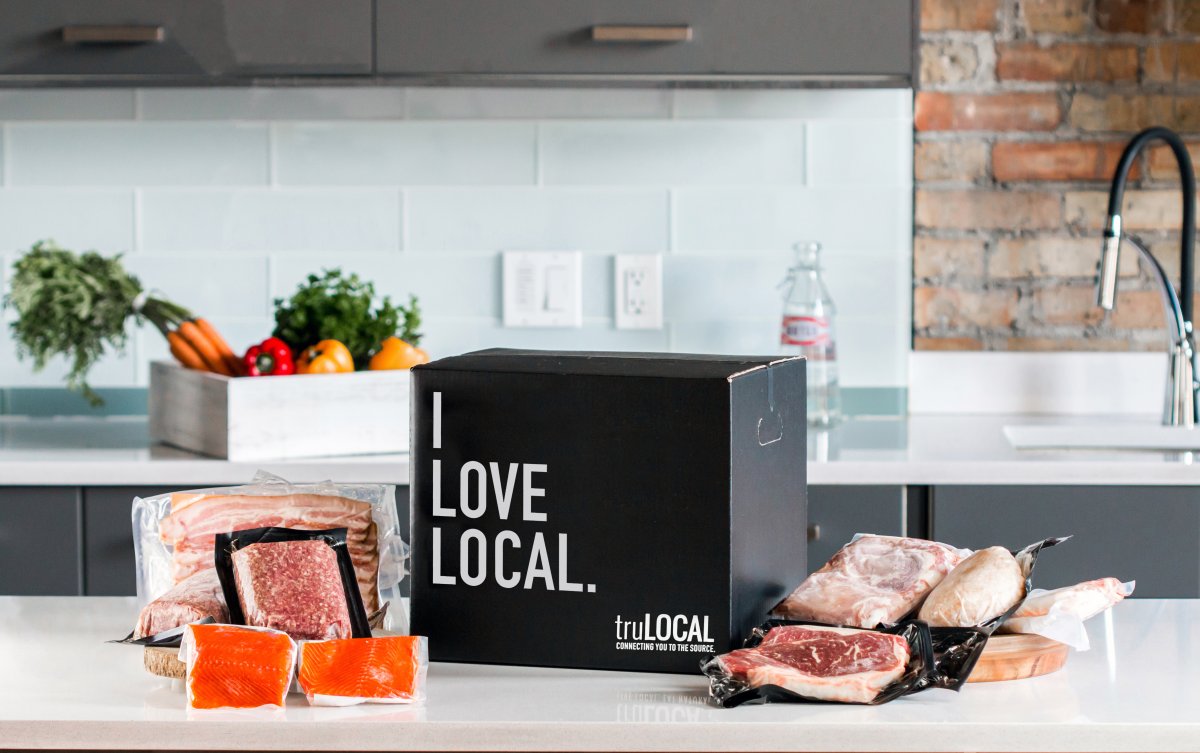

Speaking of EMERGE, an acquisition is a big decision for both sides. What was it like deciding to go through with that?
I’m 30 now, right? And I think that when building a business starting at 25, you need to look to a lot of people to try to help guide you. Going through an acquisition process alone is quite difficult. You don’t know what to expect, and it was a 10-month process.
For us, we had a lot of people that were very interested in the business, due to the nature of growth that we were seeing. The one biggest issue we were running into was that all of these businesses [who were interested in truLOCAL] wanted to completely change what true local was all about, whether it be changes to management, changes to the team, or even changes to our suppliers.
When we met Ghassan, we hit it off right away. EMERGE has a great founder-friendly approach. I think a lot of people like to say that, but after digging in and trying to understand what EMERGE was focused on doing that we realized that this was the best place for us because we wanted to keep running the business as we’ve been running it. truLOCAL was built off friends and family. So we wanted to make sure that that wasn’t going to change at all. No personnel changes. With EMERGE, they were like, “We believe in what you’re doing. We want you to keep doing exactly what you’re doing. And we want you to join our family in terms of joining this portfolio of niche e-comm businesses.” We’re excited that we were able to do that deal.
What should founders be looking for when they’re looking to either start a business together with a co-founder or during those phases of potential acquisition?
Mutual respect is the number one thing when it comes to co-founders. You don’t have to be friends—you don’t even have to like each other. Those are benefits and I highly recommend finding that, however, as long as you can maintain that mutual respect it’s the most important thing. That way, if you have a huge argument and you’re on completely different sides of the table, when that conversation is done, there’s no animosity. It’s still, “Hey, I respect you. You respect me.”
I think a lot of people think that you have to be really good friends [to be co-founders] and that it’s great when you find someone you never argue with. But, that’s not what you want. You want someone’s going to challenge you. And you want someone who is going to admit when they’re wrong. So, mutual respect is important to me.
In terms of an acquisition partner, look deep inside about what you want to get out of it. If you’re looking at this for a quick payday, one-and-done kind of thing, you’re going to look for a specific acquisition partner. If you’re looking for someone to help drive your growth, develop the team, and keep pushing the brand forward, you’re gonna want to look for somebody who’s very founder-friendly, and that’s what we found in EMERGE.
Looking back on the last four years, what’s the best piece of advice you’ve received along the way?
To turn my entire being into having a problem-solving mentality. And the reason I say that is because things never get easier in business—ever. When you’re starting a company as an early-stage founder, you’re like, “Okay, as soon as I get my first customers, things will get easier… As soon as I get my first employees, things will be so much easier… If only I could get this $100,000 investment things will be easier.” But what people don’t realize till they get there is that it just opens up a whole new set of problems. And that’s just the nature of running a business.
When you start a business, everything is against you. The market is against you. Finances are against you. Customers are against you. Competitors are against you. You have to problem-solve day in and day out. And for me, the mentality of “If I reach this milestone, things will get easier,” makes things significantly harder, because then when those challenges do arise, you’re not prepared for them. Whereas after going through year one and year two, and facing difficulties 365 days a year, you start to expect challenges. Then, when you wake up in the morning, instead of just praying for an easy day, you’re in this mindset of problem-solving. So when you wake up in the morning and you check your phone and you’ve got a fire you have to deal with, you’re ready for it.
For me, as a founder, that’s the biggest thing. Realizing that you’re a professional problem solver and that is going to be your job ongoing. Forget your title, if it doesn’t matter if you’re CEO, Vice-President, Director, or CTO. You’re a professional problem solver.
Looking towards the future—and many more problem-solving days ahead—what do you hope for truLOCAL?
For us, we’re just going to be more excited to be working with EMERGE. It’s a great opportunity and I think that there’s going to be a lot of e-comm disruption coming up. I’ve always said, you can go fast alone, but you go far together. And we’re just excited to be able to partner up with other niche e-comm businesses that are winners in their space. We can leverage all of our resources together and independently, but together, be winners. So that’s what we’re excited about.
On the specifically truLOCAL side, we’re excited about developing Canada’s regional supply chains—it’s a huge focus for us. So, we’re very excited about what the future holds.
Is there anything else that we haven’t talked about that you’d like to touch about?
I’d like to give a huge shout-out to the team! Our team is everything. Our team is family. We’ve put together an amazing dedicated group of individuals to make this happen, so I want them to have credit for all that they’ve accomplished![/vc_column_text][vc_separator color=”custom” accent_color=”#54c631″][/vc_column][/vc_row][vc_row][vc_column][yikes-mailchimp form=”1″ title=”1″ submit=”SUBSCRIBE”][/vc_column][/vc_row]


